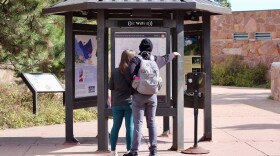-
Scott Socha is an executive at Delaware North, a company that contracts with the National Park Service to provide lodging and food at several national parks.
-
The National Park Service started free entry days in 2009. The selection and number of days have varied, but Martin Luther King Jr. Day has been on the list ever since 2011.
-
Congress' budget proposal for the National Park Service rejects the major slashes requested by the Trump Administration last year.
-
The National Park Service says it is going to start charging international tourists an extra $100 to enter some of the most popular U.S. parks. They will be left out of fee-free days that will be reserved for American residents.
-
During the lapse in federal funding, Utah and Colorado, along with several nonprofit partner organizations, stepped in to keep key visitor services running.
-
The Trump Administration is using revenue from recreation fees to keep bathrooms clean and trash tidy at national parks during the shutdown. But parks are not charging fees at this time.
-
The National Park Service said most roads and trails are open, but most buildings are closed. Some are confused about what they’ll find when they arrive at any given park site.
-
It wasn’t a typical fall day at one of the most popular national parks in the country. The night before, the federal government shut down, leaving fewer workers on the job. Yet the Trump Administration decided that national parks should largely remain open, nonetheless.
-
Park road and trails will mostly be open to visitors, but buildings and sites that can lock during non-business hours will stay inaccessible.
-
Rocky Mountain National Park is ready for summer crowds and will once again require timed entry to access the park. Here's what you need to know to guarantee your access to RMNP.

Play Live Radio
Next Up:
0:00
0:00
Available On Air Stations









